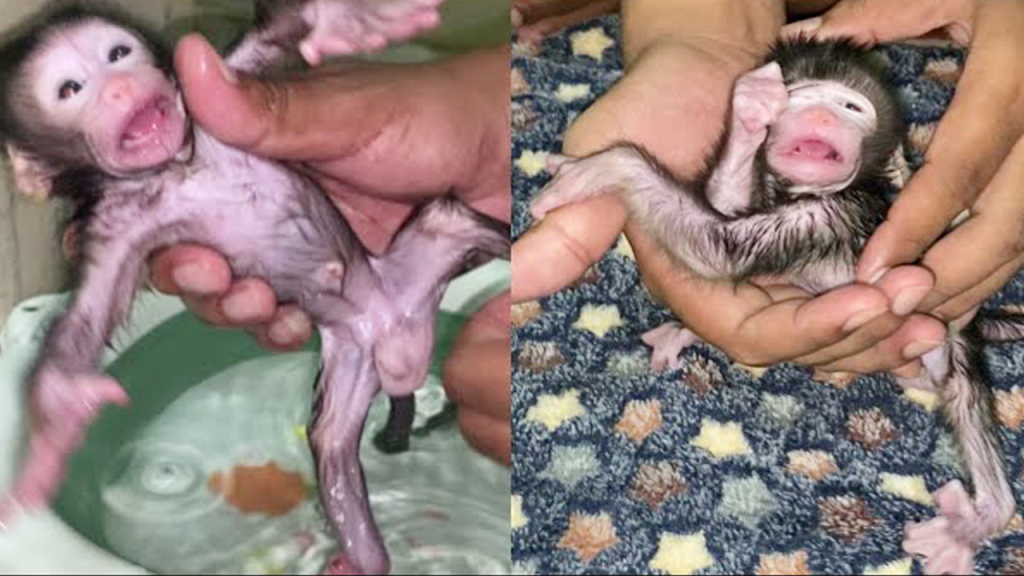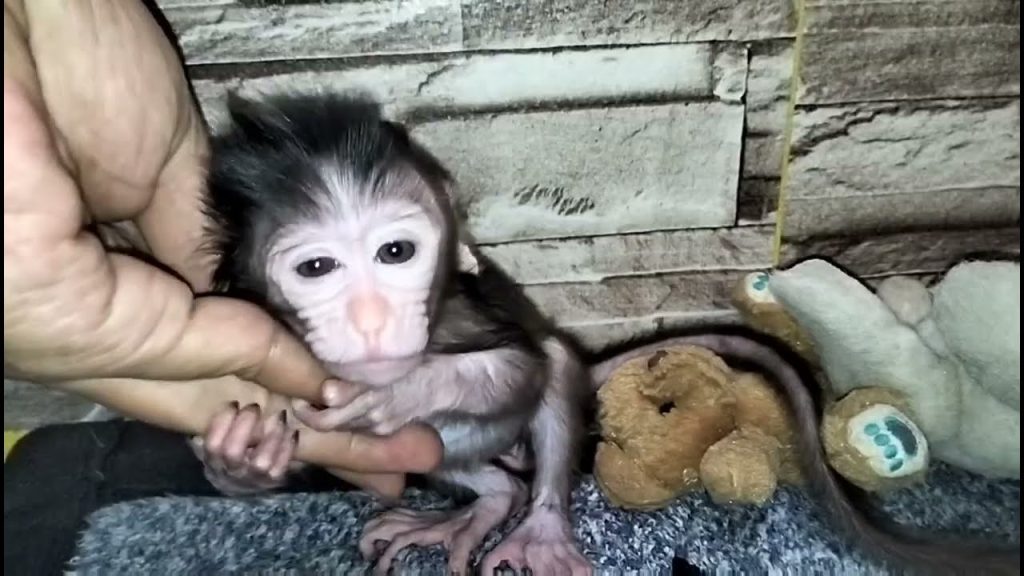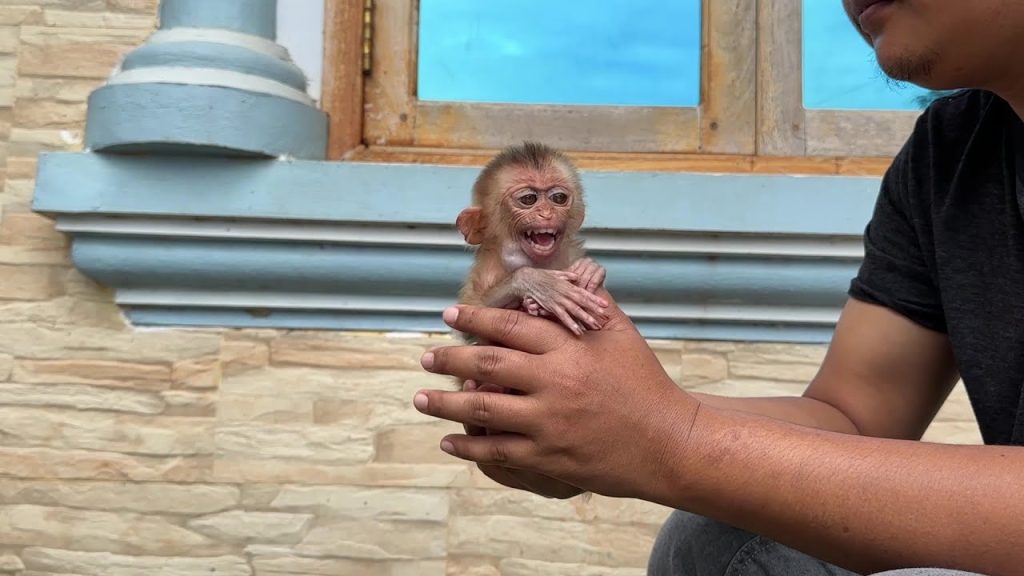
A tiny, frightened baby monkey curling into himself and covering his face while he sleeps is one of the clearest signs of emotional stress. For an animal so young, the world can feel unbearably overwhelming—too loud, too big, and too uncertain. When fear becomes too much, he does the only thing his instincts tell him: he shields his face with his small hands and tries to disappear into the safety of darkness.
Baby monkeys rely heavily on a sense of security during sleep. In the wild, they press tightly against their mothers’ chests, feeling her heartbeat and warmth throughout the night. Being held is part of their survival. But when a monkey has been separated from his mother or has experienced something frightening—abandonment, injury, loud noises, or sudden changes in his environment—he no longer has that built-in comfort. The loss of that familiar warmth leaves him vulnerable, anxious, and unsure of when safety will return.
Covering his face is his way of recreating that sense of protection. By blocking out light and surrounding movement, he tries to convince himself he is tucked beneath a mother’s arm, hidden from the world. The gesture is small, but its meaning is enormous. It shows just how deeply fear can impact such a fragile creature.
As he sleeps like this—hands over his eyes, body curled tight—the trembles in his tiny limbs slowly fade. His breathing steadies. The tension in his shoulders softens. Even in fear, his little body knows how to seek comfort in the only way it can.
A caregiver who sees this understands immediately: this baby needs gentleness, patience, and steady reassurance. Soft bedding, a warm cloth, quiet surroundings, and slow movements help him build trust again. Offering a warm bottle before sleep or gently stroking his back can gradually teach him that he is no longer alone. Over time, these small comforts begin to heal the wounds that fear has left behind.
As days pass, the change becomes clear. The baby monkey uncurls more easily. He peeks out instead of hiding. Eventually, he falls asleep not with his face buried in his hands, but resting softly on his bedding or nestled safely in a caregiver’s arms.
The sight of him sleeping peacefully becomes a quiet victory—a sign that fear is fading and that hope, safety, and love are taking its place.


